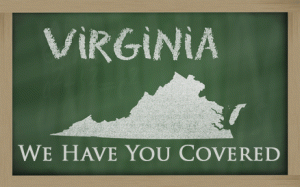 Are you looking for Virginia collection attorneys for your business or to collect a past judgment? If so, consider contacting Chaplin & Gonet to discuss your collection needs and how our office can help you achieve your collection goals.
Are you looking for Virginia collection attorneys for your business or to collect a past judgment? If so, consider contacting Chaplin & Gonet to discuss your collection needs and how our office can help you achieve your collection goals.
Past due accounts and uncollected judgments represent lost income to Virginia businesses and Chaplin & Gonet can help turn those past due accounts into revenue streams. How is Chaplin & Gonet different than other Virginia collection attorneys? Our attorneys cover the entire state of Virginia and you can rest assured that our experienced litigation and collection attorneys are the only ones handling your claims.
Unlike many collection agencies or collection firms, we do not have to outsource the majority of our collections work. You know who you are working with, which means increased peace of mind for our clients. Our office is located in Richmond, which gives us convenient access to all parts of the state. Call our offices today to learn more about our services and how we help Virginia businesses thrive in todays mobile, fast-paced society.
No Nonsuit After Defective Signature
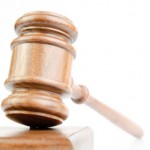
In a recent Norfolk Circuit Court case the judge ruled that a lawyer’s missing signature from the Complaint prevented them from taking a nonsuit, since the defective Complaint was not a “validly pending proceeding.” In this particular case, the the plaintiff’s signature appeared on the Complaint, but the attorney’s signature was not endorsed above their printed name.
This recent ruling is a poignant reminder for those Virginia subrogation attorneys and other plaintiff attorneys that any defective complaint can jeopardize a nonsuit. The strategic value of a nonsuit, the peculiar remedy in Virginia allowing the plaintiff to dismiss a claim voluntarily and thereby toll the statute of limitations by six months, cannot be overstated. When a case like this comes along it reinforces the need for close scrutiny of all pleadings, but especially complaints, as an innocent error can result in a statute of limitations problem and future bar complaints and ethics litigation.
Interview with Carrier is Protected Work Product
 A recent ruling by the Prince William County Circuit Court declared that interviews by carriers with their insured regarding an auto accident fall within the shield provided by the “work product” doctrine of supreme Court Rule 4:1(b)(3). The Virginia Court of Appeals upheld the decision. Plaintiff’s motion to compel was denied for several reasons.
A recent ruling by the Prince William County Circuit Court declared that interviews by carriers with their insured regarding an auto accident fall within the shield provided by the “work product” doctrine of supreme Court Rule 4:1(b)(3). The Virginia Court of Appeals upheld the decision. Plaintiff’s motion to compel was denied for several reasons.
First, the court stated that the “work product” doctrine “protect[s] not only materials gathered by or for counsel in anticipation of litigation, but materials gathered by or for others, including the liability insurance carrier.” Furthermore, the court cited Veney v. Duke for the proposition that discussions of third party coverage is protected by the “work product” doctrine, and extended that logic to discussions of first party coverage. Finally, since the case at bar involved an insured who plead guilty to a traffic infraction and contested liability in a subsequent civil case, the court stated that the affirmative duty of defense counsel to prevent his client from testifying to a known falsehoods “offers sufficient protections.”
This ruling has important ramifications for Virginia subrogation attorneys, insurance defense firms and personal injury attorneys. For the Virginia subrogation attorney, this ruling confirms an intuition long held, that those conversations by insurance adjusters regarding third party coverage should be protected under Virginia’s “work product” doctrine. Insurance defense firms facing Virginia subrogation firms should expect to be stymied by this latest ruling when issuing subpoenas duces tecums in the future.
Justin McLeod
Virginia Texting Law May Need Tweaking
 A case in Fairfax General District Court, heard before Judge Thomas E. Gallahue, underscores the need for the Virginia General Assembly to overhaul the Reckless Driving code section to explicitly include texting while driving. In the case Judge Gallahue dismissed the reckless driving charge against Jason Gage since the statute in question, VA Code section 46.2-852 et seq. This issue directly affects Virginia Subrogation attorneys, who routinely use the convictions or pleas of guilt to driving offenses as evidence in the case against defendant drivers.
A case in Fairfax General District Court, heard before Judge Thomas E. Gallahue, underscores the need for the Virginia General Assembly to overhaul the Reckless Driving code section to explicitly include texting while driving. In the case Judge Gallahue dismissed the reckless driving charge against Jason Gage since the statute in question, VA Code section 46.2-852 et seq. This issue directly affects Virginia Subrogation attorneys, who routinely use the convictions or pleas of guilt to driving offenses as evidence in the case against defendant drivers.
The case in question arose from Jason Gage allegedly reading texts while driving, according to Gage’s cellular records, which show he received several text messages around the time of the accident. Kyle Alec Rowley, only 19 years of age, was fatally struck by Gage’s car when his car was parked in the right travel lane after ceasing to operate. Rowley’s hazard lights were illuminated and the car in front of Gage successfully navigated around Rowley’s vehicle, but Gage struck the rear of Rowley’s vehicle, killing Rowley.
According to police there were no signs of excessive speed or driving under the influence to account for Gage’s accident, which led them to investigate his cellular records. The police did not think to charge Gage under VA Code 46.2-1078.1, which levies a $20 fine for texting while driving. Since the reckless driving statutes do not include provisions proclaiming texting or talking on a cell phone “reckless” Judge Gallahue stated he had to dismiss the charge.
There is a strong argument that amending the reckless driving statutes to include a provision for texting while driving will send a strong message to Virginia drivers to cease texting while driving. There have been numerous studies demonstrating texting while driving exponentially increases the likelihood of an accident. For the Virginia Subrogation attorney having a clearly written, inclusive reckless driving statute makes prosecuting subrogation claims easier to prove in court, since a conviction or admission would demonstrate prima facie negligence on the part of the defendant.
New VA Evidence Rule 2:411 Affects Litigation
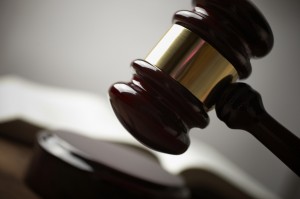 There is a long-standing doctrine at common law known as the “collateral source” rule. Virginia codified this in VA Code § 8.01-35, which states:
There is a long-standing doctrine at common law known as the “collateral source” rule. Virginia codified this in VA Code § 8.01-35, which states:
In any suit brought for personal injury or death, provable damages for loss of income due to such injury or death shall not be diminished because of reimbursement of income to the plaintiff … from any other source, nor shall the fact of any such reimbursement be admitted into evidence.
The collateral source doctrine arose to bar defense attorneys from raising the fact at trial that plaintiffs were compensated for their injuries or lost wages arising out of an injury. The public policy reason being that to do so could sway the jury and, in effect, punish the victim for carrying insurance and observing their social responsibility. The vast majority of the time the collateral source doctrine arises in personal injury actions or medical malpractice litigation. So how does the collateral source rule affect the Virginia subrogation attorney?
In the typical subrogation case involving an automobile accident the policyholder is the witness for the plaintiff (the insurance company) and the defendant is uninsured and testifying on their own behalf. The policyholder has been compensated for their loss and the vast majority of the time has nothing to gain or lose by the outcome of the case. They are merely acting as a witness. However, for the defendant the case can have major consequences, both financial and personal. Therefore, sometimes in a “he said, she said” case it can be prudent to point out to the trier of fact that the plaintiff’s witness has nothing to gain by their testimony, while the defendant has something to lose, sometimes a lot.
This can sometimes run into an objection by defense counsel if the opposing party is represented, citing the collateral source rule, or the judge, sua sponte , will express misgivings about bringing up the fact that one witness was compensated under an insurance policy. There is a strong argument that under current case law the collateral source doctrine does not apply to most property damage cases since the statute expressly refers to “suit brought for personal injury or death”, but there is a common misconception that the common law and the statute act as an absolute bar.
The new Virginia Rules of Evidence put any confusion to rest, however, in the text of Rule 2:411 “Insurance”:
Evidence that a person was or was not insured is not admissible on the question whether the person acted negligently or otherwise wrongfully, and not admissible on the issue of damages. But exclusion of evidence of insurance is not required when offered for another purpose, such as proof of agency, ownership, or control, or bias or prejudice of a witness.
When read in conjunction with VA Code § 8.01-35 it is clear that evidence of an insurance policy can be admitted into evidence to demonstrate the objectivity or bias of a witness. Therefore, the Virginia subrogation attorney can point out to the trier of fact that the policyholder has nothing to lose or gain by the outcome of litigation. Most of the time judges will make this connection on their own, but in close cases it can help to tip the scales to that crucial 51% needed for the “preponderance of the evidence” standard required.
We will continue to analyze the new Virginia Rules of Evidence to evaluate their impact upon subrogation litigation in Virginia, stay tuned.
"Sea Change" in Virginia Evidence
The new rules of evidence went into effect throughout Virginia on July 1st, and as one legal expert stated, it represents a “sea change” within the legal community. Virginia has relied upon a mixture of case law and common law to govern rules of evidence, but now there are rules. The biggest difference is that rules represent black and white mandates, whereas case law has gray areas allowing judges and lawyer room to argue and mold them to suit their purposes.
In a Fairfax Bar Association Seminar the following rules were selected as having the greatest impact:
- The contemporaneous objection requirement of Rule 2:103. The objection must be made with “reasonable certainty,” under the law.
- Character evidence allowed under Rules 2:404-405.
- Offers to compromise (Rule 2:408) this rule allows into evidence an admission as to liability or an admission concerning an independent fact pertinent to a question in issue. Attorneys often speak or write to each other in confidence and this rule could place these type of candid, often constructive, conversations on ice permanently.
- Evidence of repeated abuse of the defendant by the victim, Rule 2:409. The new rule allows evidence of psychological abuse, which some judges may have prohibited.
- Impeachment of witnesses, combination of Rules 2:607-609).
In short, the offers in compromise change alone warrants close examination by personal injury attorneys and underscores the importance of all attorneys at least perusing the Rules for any changes that could affect their practice.
Using Judicial Records as Evidence
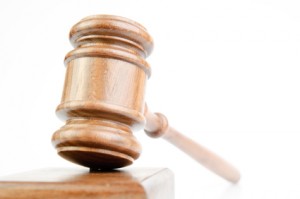 Subrogation attorneys dealing with a high volume of automobile cases often have to litigate cases “on the fly.” Policyholders can be tough to reach and often all the attorney has going into trial is the adjuster’s notes, which range in depth and quality of description. However, occasionally the job is made easier by a traffic case having arisen out of the same incident. The internet provides the Virginia subrogation attorney with a powerful tool: online case records search. A quick search before trial will reveal whether the defendant plead guilty, or was found guilty, of a traffic offense. So what can the Virginia subrogation attorney do with the judgment? VA Code §8.01-389(A1) allows the introduction of said judgment as prima facie evidence. The statute requires the records be “authenticated” by the clerk of the court where it was preserved.
Subrogation attorneys dealing with a high volume of automobile cases often have to litigate cases “on the fly.” Policyholders can be tough to reach and often all the attorney has going into trial is the adjuster’s notes, which range in depth and quality of description. However, occasionally the job is made easier by a traffic case having arisen out of the same incident. The internet provides the Virginia subrogation attorney with a powerful tool: online case records search. A quick search before trial will reveal whether the defendant plead guilty, or was found guilty, of a traffic offense. So what can the Virginia subrogation attorney do with the judgment? VA Code §8.01-389(A1) allows the introduction of said judgment as prima facie evidence. The statute requires the records be “authenticated” by the clerk of the court where it was preserved.
Practically, in most instances if the trial time gives the attorney some time to get into the clerk’s office before court then getting to court 30 minutes early or more will allow time to get a certified copy from the clerk. Most of the time the citation or case was litigated in the traffic court of the same jurisdiction in which the present civil case is being tried. Obviously, if it is a different court, or if trial time is first thing in the morning, counsel may have to go by court before he trial on another day or request it by mail if the clerk’s office obliges.
Virginia Subrogation Statute
Subject of the Subrogation Statute
One of the few codified mentions of subrogation in Virginia deals with medical services rendered arising out of negligence. VA Code § 8.01-66.4 allows for subrogation where “any person, firm or corporation who may pay the charges for which a lien is provided in §8.01-66.2 shall be subrogated to such lien.” The lien in question is one automatically created by Virginia law. The lien arises when one receives medical care arising from a negligent act. The provider of the services has a lien on the injured person’s claim against the negligent person or entity.
Covered Entities
VA Code § 8.01-66.2 includes the following:
- hospital, public or private
- nursing home
- physician
- registered nurse
- registered physical therapist in this Commonwealth
- receives medicine from a pharmacy
- ambulance service
Limitations on Recovery
Covered entities are limited to the ” just and reasonable charge for the service rendered, but not exceeding $2,500 in the case of a hospital or nursing home, $750 for each physician, nurse, physical therapist, or pharmacy, and $200 for each ambulance service.”
Trees Over Property Lines in Virginia
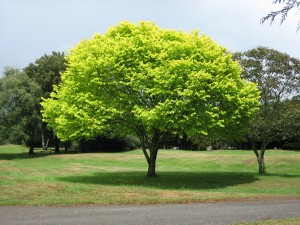 A Virginia subrogation attorney handles a range of issues, some more than others. Cases involving neighbors’ trees causing damage to vehicles or homes occur more frequently than one would think. It makes sense considering the geography of our state. Virginia is home to a variety of large deciduous and coniferous trees which are a marvel to view, but can cause real problems with both their branches and their root systems.
A Virginia subrogation attorney handles a range of issues, some more than others. Cases involving neighbors’ trees causing damage to vehicles or homes occur more frequently than one would think. It makes sense considering the geography of our state. Virginia is home to a variety of large deciduous and coniferous trees which are a marvel to view, but can cause real problems with both their branches and their root systems.
The seminal case in Virginia, Fancher v. Fagella, 650 S.E.2d 519 (Va., 2007), clearly settles the question of whether the owner of the encroaching tree is responsible for the damage caused to his neighbor’s property. The parties in the suit were neighbors, and still could be, in adjoining town homes in the County of Fairfax. Joseph Fagella had a large sweet gum tree growing on his property that Richard Fancher alleged was damaging his property and that the tree constituted a noxious nuisance. Specifically, Fancher alleged that the tree was damaging his retaining wall, the rear foundation of his house and rendering the steps to his house ineffectual due to root encroachment. Fancher attempted self-help by attempting repair and cutting back branches and roots, but they always grew back. He prayed for an injunction requiring the removal of the tree and an award of damages in compensation for repairs made to the wall and the foundation. At the hearing expert testimony was presented and it was established that the trunk of the tree was located on Fagella’s property. The arborist testifying stated that the sweet gum is native to the area, that it grows to “incredible heights of 120 to 140 feet” at maturity and would eventually reach a trunk diameter of 4 to 6 feet. The arborist testified that the tree was deciduous, dropped “spiky gumballs,” had a “heavy pollen load,” an “extremely invasive root system” and a “high demand for water.” His opinion was that the tree was presently “only at mid-maturity,” that it would continue to grow, and that “[n]o amount of concrete would hold the root system back.” The root system was, in his opinion, the cause of the damage to the retaining wall and the pavers and “in the same line as those cracks to the wall and the foundation.” The arborist stated that the tree was “noxious” because of its location and that the only way to stop the continuing damage being done by the root system was to remove the tree entirely, because the roots, if cut, would grow back. After the presentation of evidence was concluded Fagella made a motion to strike the prayer for injuctive relief, based upon the Virginia Supreme Court case Smith v. Holt, and the motion was sustained. Fancher filed an interlocutory appeal to the Virginia Supreme Court, certiorari was granted.
The Virginia Supreme Court had to settle which of the two developing legal doctrines Virginia would adhere to when presiding over cases dealing with trees and neighboring properties: (1) the Massachusetts Rule or the (2) Virginia Rule. The Massachusetts Rule limits the victim to self-help and provides no remedy at law when plants are encroaching upon a neighbor’s property. The Virginia Rule provides that encroaching roots and plants can be classified as a “noxious nuisance” when they cause actual harm or pose actual danger to persons or property. In other words, the offending plants cannot merely drop flowers, cast shade or cause other minor annoyances. Ultimately, the Virginia Supreme Court adopted the “Virginia Rule” and sustained the injunction against Fagella.
TX Shines Light for VA on Equitable Subrogation Principles
 The Texas Supreme Court overturned the Austin Court of Appeals in Texas Health Ins. Risk Pool v. Sigmundik, 315 S.W.3d 12, 14 (Tex.2010) that ruled the “made whole” doctrine was inapplicable in a subrogation action where a contract clearly lays out a right to subrogation. This reversal is in line with a previous case, Fortis Benefits v. Cantu, 234 S.W.3d 642 (Tex.2007), standing for the same proposition.
The Texas Supreme Court overturned the Austin Court of Appeals in Texas Health Ins. Risk Pool v. Sigmundik, 315 S.W.3d 12, 14 (Tex.2010) that ruled the “made whole” doctrine was inapplicable in a subrogation action where a contract clearly lays out a right to subrogation. This reversal is in line with a previous case, Fortis Benefits v. Cantu, 234 S.W.3d 642 (Tex.2007), standing for the same proposition.
Despite this clear line of case law, the Austin Court of Appeals erred on the side of the “little guy” in the situation where a trial court attempted to allocate the entirety of an $800,000.00 settlement in a negligence suit to the family of an individual who was injured in an oilfield explosion and spent 52 days in the hospital before eventually succumbing to his extensive injuries. When the insurance company intervened in the action and asserted a $330,000 lien on any recovery obtained by the family the trial court ruled that where subrogation claims work an injustice they should not be allowed. The court cited the financial hardship of the family and the solid financial position of the insurance company. The Austin Court of Appeals concurred with the trial court’s reasoning and affirmed. Ultimately, the Supreme Court overturned the ruling and cited its own cases to the contrary.
These cases are instructive for the Virginia subrogation counsel facing sympathetic trial judges who may be tempted to ignore the plain subrogation language in an insurance contract to “balance the equities.” As the Texas Supreme Court affirms, contracts are still held to be almost sacrosanct, no matter the outcome. This applies for subrogation, just like any other form of contractual agreement.
